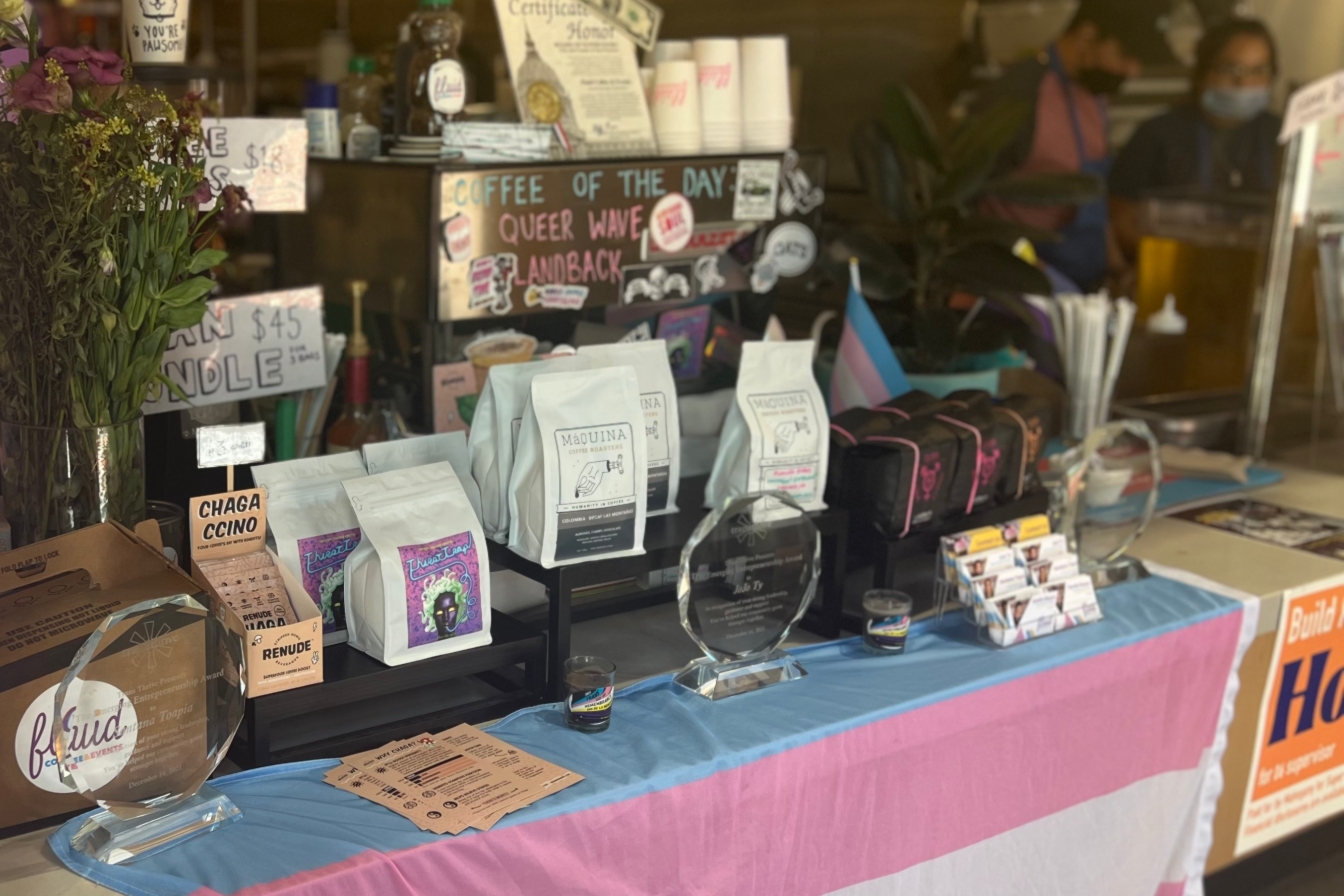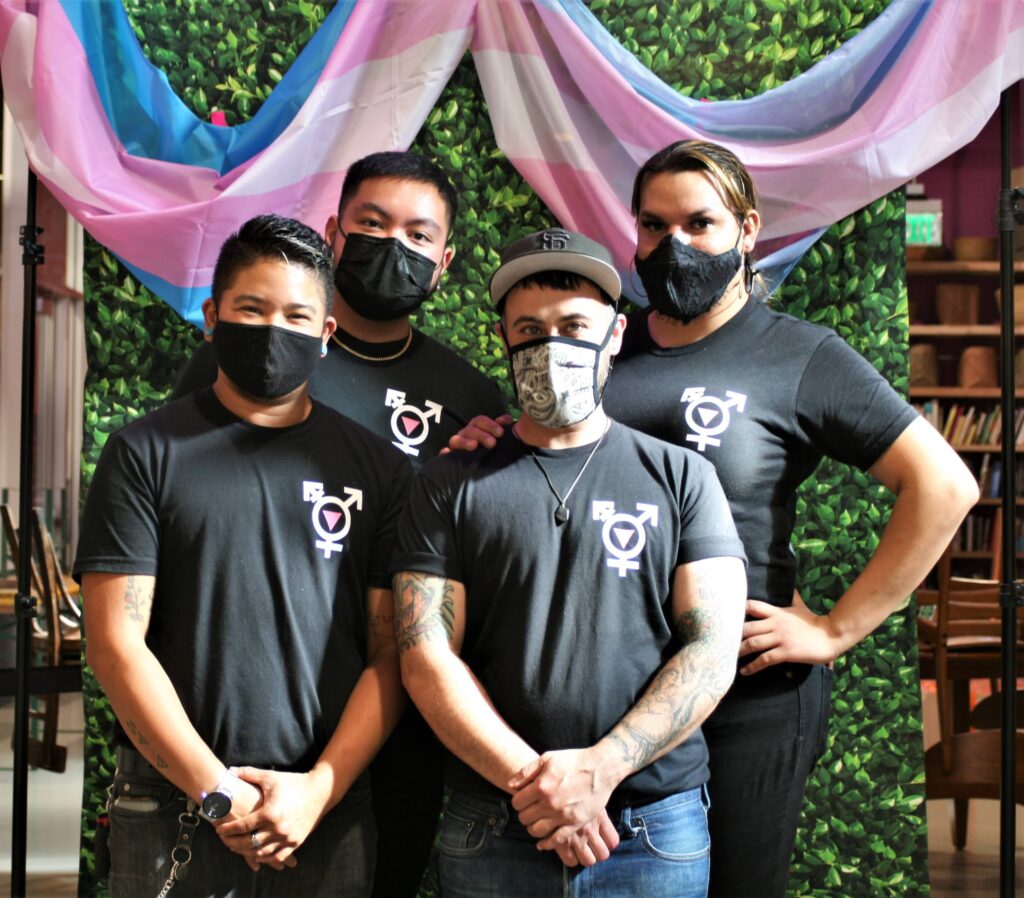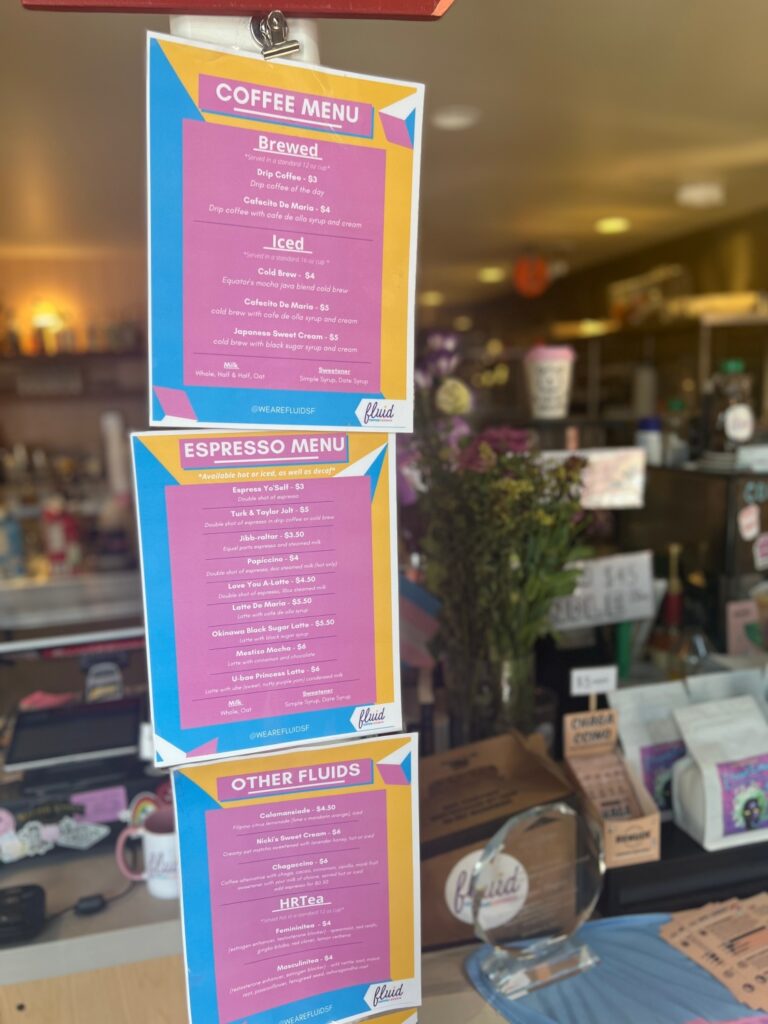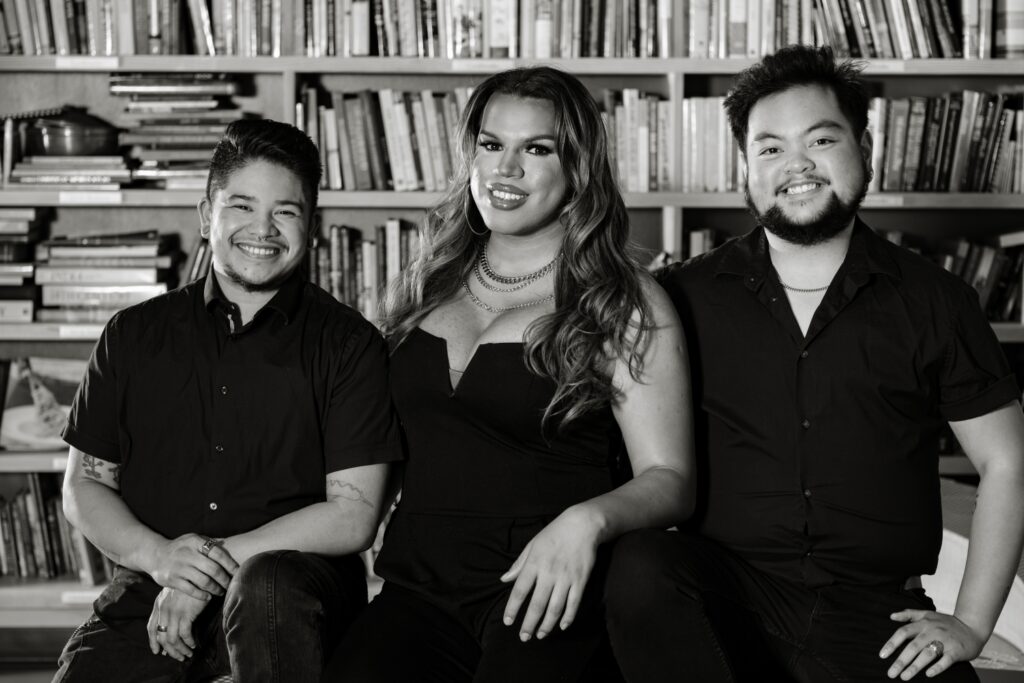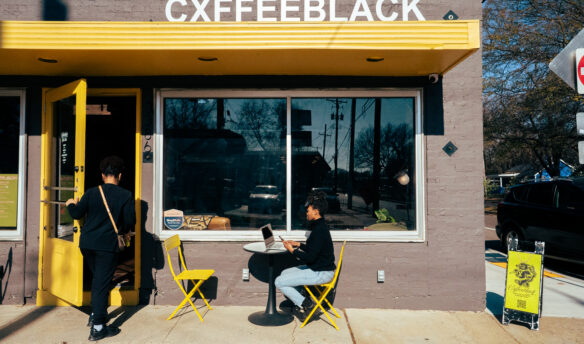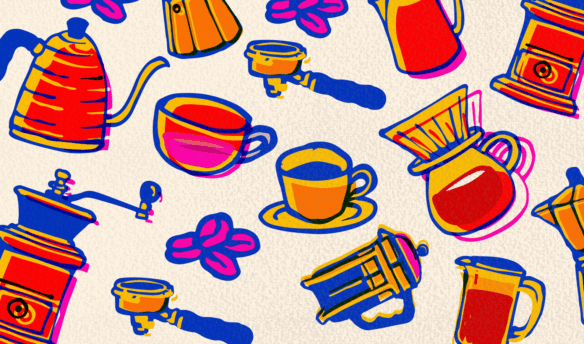Santana Tapia knows that revolution starts with a coffee cup. She’s sitting in the grape-colored booth inside sunny Fluid Coop SF. Her voice is a little raspy; outside of work, she’s a drag performer well-known in San Francisco, but she doesn’t seem tired or worn. If anything, Tapia is serene in the chaos of the cafe behind her. She radiates joy, and her satisfied smile says, “Look, we made it.”
Fluid Coop SF is a cafe and event space at the entrance of an airy nonprofit cafeteria in the Tenderloin, a neighborhood in downtown San Francisco. The concept came from co-owners Tapia, Jojo Ty, and Shannon Amitin, who share a background in community organizing. One evening, Tapia struggled to find a post-meeting location to connect with other activists. “Jojo wasn’t 21 yet. I was freshly 21,” Tapia says. They couldn’t afford a meal, and increased police presence made most places too dangerous for them.
San Francisco is often considered a liberal city, but trans people have been harassed and legislated against for decades for simply existing. Until 1974, trans people in San Francisco could be arrested for having their shirt buttons on the wrong side under a law criminalizing gender expression. Outside of the city’s downtown main library branch, where queer and trans people historically cruised between stacks of books, there weren’t many options for trans people to safely congregate.
At the time, the only queer meeting places were centered on alcohol or hooking up. That sparked an idea for Tapia, Ty, and Amitin. Enter Fluid Coop SF, a gathering space that centers queer and trans people. Through family game nights and ethical buying practices, everything Fluid does is to create a safe space for the queer and trans community.
A Labor of Love
Fluid Coop SF ensures queer folks don’t feel pressured or like they’re being watched. You don’t have to be a paying customer to visit. There are free events like a family-style game night, artist meetups for folks who don’t have an established professional network, and even Queer Speed Dating, a campy twist on the heteronormative classic that reassures people they can innocently date around and not worry about finding a soulmate. “After all, you don’t need someone to complete you,” Tapia says.
There’s a deep comfort to everything on the menu—Tapia’s mom used to remind her you could taste someone’s love in the food they cook, and she took it to heart. “You can taste the intentionality in the cup,” she says. The recipes all have stories. Buy a cup of Cafecito de Maria, for example, and you’re buying her grandmother Maria’s cafe de olla, a traditional Mexican coffee drink made with cinnamon and dark sugar.
The sincerity comes from a policy the co-founders made: “Every person who joins us comes in with a recipe based on a memory that brings them comfort,” Tapia says. “We want people… to feel part of our family.” In a world where trans and queer people are increasingly afraid for their safety, Fluid’s space is designed to be cozy and welcoming.
Shared Building
Fluid Coop is a shared enterprise; in a cooperative, the people who work behind the counter are members who manage together. “The idea isn’t new,” Tapia says. “What’s different about Fluid is who curates it and drives it.” Tapia is one of three co-founders; all three are trans folks of color, and they put in the same hours for the same compensation as any other member. They’re adding new members regularly, all of whom have equal voting power as the initial founding members.
Behind the counter, you’ll see the work of 100% trans, non-binary, gender nonconforming, and queer people of color, down to the beans. “Our beans reflect our values, and all beans are roasted by queer and trans people. Our roasters know who cultivates them, and they pay a fair price or better.” Their roasters include a rotating lineup from folks like Mother Tongue, Queer Wave Coffee, and Máquina.
Fluid’s current location is ephemeral and has an expiration date. The shop is housed in La Cocina, a marketplace at 332 Golden Gate Avenue, which will be torn down, and the site will become much-needed affordable housing in late 2023. But Tapia is not going anywhere. The Tenderloin, affectionately called the TL, is homeland. It’s where Tapia says her trans ancestors started the revolution, pre-Stonewall. They’re planning to lease a new spot.
Here in San Francisco, the goal is to help community members “open a Fluid in every neighborhood to counter what gentrification has done,” says Tapia. “It will reflect that neighborhood’s culture and history. But we’ll be in the TL.” The long-term vision is that anyone can take the skeleton of what Fluid is and start their own cafe anywhere in the world.
In August of 1966, a trans woman sitting in a cafe in the Tenderloin got tired of the owners calling the police on her and other trans women. When an officer grabbed her, she rebelled by taking her cup of coffee and splashing it on the officer, an event later known as Compton’s Cafeteria riots. That August, trans women started fighting back, and it’s not lost on Tapia the significance and history of Fluid’s presence in the TL. “We [Fluid] opened in August, too,” Tapia says. That’s the dream, she says, to “own a coffee shop where a coffee cup was used to start a revolution.”
Details about supporting Fluid’s cause, and their search for a brick-and-mortar home, can be found on their website.
Photos courtesy of Fluid Coop SF.
Bunny (she/they) is a queer Chicana mother and writer in San Francisco.

